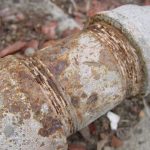When people think about licensed plumbers, they are likely to think about urgent water leaks or a renovation project in their home or business. These are both vital aspects of plumbing work, but many plumbers are called out to deal with very minor and preventable plumbing problems. This can cost the person stress, time, and money, yet this can be avoided by a little thought, and by adjusting their habits slightly. In this article, we will take a look at four common plumbing problems that can be prevented or at least mitigated in your home or business.
- A Clogged Bath or Shower Drain
When a clog forms in the bath or shower drain, there is often some advance warning that there is a problem. The water will begin to drain away slowly, and you may be ankle deep in water when you want to dry off and get out. A bathroom clog is typically caused by an accumulation of materials, such as hair, soap, small items, and perhaps soap scum if you have hard water issues. The primary binding agent is the soap or soap scum, but it needs hair or other materials to form a clog large enough to block the drain.
The simplest solution is to install a sink/shower strainer in the entrance to the drain. This will catch the hair, it’s easy to remove, and you can clean it into the trash. Prevention is better than the cure, and removing the chance of hair getting into the drain will go a long way to preventing the formation of clogs in the bath or sink. Another preventative measure is to switch to a liquid body wash or shampoo and use those products instead of hard blocks of soap. If you have hard water issues that cause soap scum in your home, a water softener system can also help.
If a clog forms in your bath or shower drain, you don’t need to call the plumber first, and you may be able to fix the problem yourself. If you don’t have a simple cup plunger in your home, get one and keep it handy for simple unclogging jobs. Simply run some water into the drain, place the cup over the drain and move the plunger up and down slowly to change the pressure and force the clog loose. Don’t overwork the plunger; take your time, and many simple clogs can be removed easily. If the clog is hard to remove, call a plumber to manually remove it for you with specialized tools. Don’t resort to using chemical drain clearing products because they are caustic, and they can damage your plumbing pipes.
- Insufficient Volume of Hot Water
In many cases, this simply the home using more hot water than the tank can realistically produce. This is often a problem when people come to visit, and the hot water needs of the home are greater. But, if you notice that this has become a consistent problem in your home, it may be time to invest in a new hot water heater. A new unit will be more energy efficient, and you can purchase a water heater that better suits your needs.
But, if you only have intermittent hot water issues or you don’t want to invest in a new hot water heater at this time, there is simple solutions that may help. Avoid using multiple water using appliances at the same time that need a supply of hot water. If you don’t use the dishwasher or washing machine at the same time as you take a hot shower, the demand for hot water will be lower.
- A Backup in the Kitchen Sink
The typical kitchen sink experiences a great deal of abuse in many homes. All manner of materials, such as grease, oil, fat, and food debris is flushed into the drain, and this can cause serious clogging issues that cause the sink to back up. This is entirely preventable, only wastewater should go down the drain, and everything else should go in the trash. Proper disposal of all cooking fats is essential for safety and to preserve the health of the plumbing system.
When the garbage disposal is running, plenty of water should be used, and materials, such as fruit peels, coffee grounds, and egg shells, should not be placed in the unit. If you have a kitchen sink back up, you can attempt to clear the clog using a cup plunger, as we showed above. If the clog is persistent, you need to contact your local professional plumber to clear it for you.
- Leaking Plumbing Pipes
Plumbing pìpes can spring a leak due to aging, but another common cause is high water pressure. Many people enjoy a higher water pressure, it makes showering a more enjoyable experience, and the water is quickly delivered to each faucet. But, if the water pressure is too high, it can create a number of problems in the pipes. When the water pressure is set to a high level, it will create additional strain on your plumbing pipes, and this can lead to a water leak.
Another problem in hard water areas is the formation of scale deposits on the internal surface of the pipes. This will gradually build up over time, narrowing the pipe diameter, and inhibiting the flow of water. Eventually, the plumbing pipes will be damaged by the build up of mineral deposits, and the resulting cracks and breaks can cause a great deal of water damage in a very short period of time.
A regular plumbing inspection can identify many of these problems, and it is possible to turn down the water pressure and repair or replace damaged sections of pipe. This isn’t a job for a DIY enthusiast, but by acting with a preventative mindset, you can avoid a minor issue developing into a larger problem later on. If you’re concerned about the state of your home plumbing, contact your
local professional plumber for expert help and advice today.
By Giovanni Longo President Flood Brothers Plumbing
Giovanni Longo is a 3rd generation master plumber who has been practicing his craft and trade in the greater Los Angeles area for well over a decade and a half. A plumbing and hydraulics-engineering innovator, Giovanni’s particular world-class expertise focuses on dealing with challenging sewer system designs as well as resolving complex commercial and residential draining issues. As a certified Flood Mitigation expert, he is also well versed in a wide variety of water damage and remediation solution.





